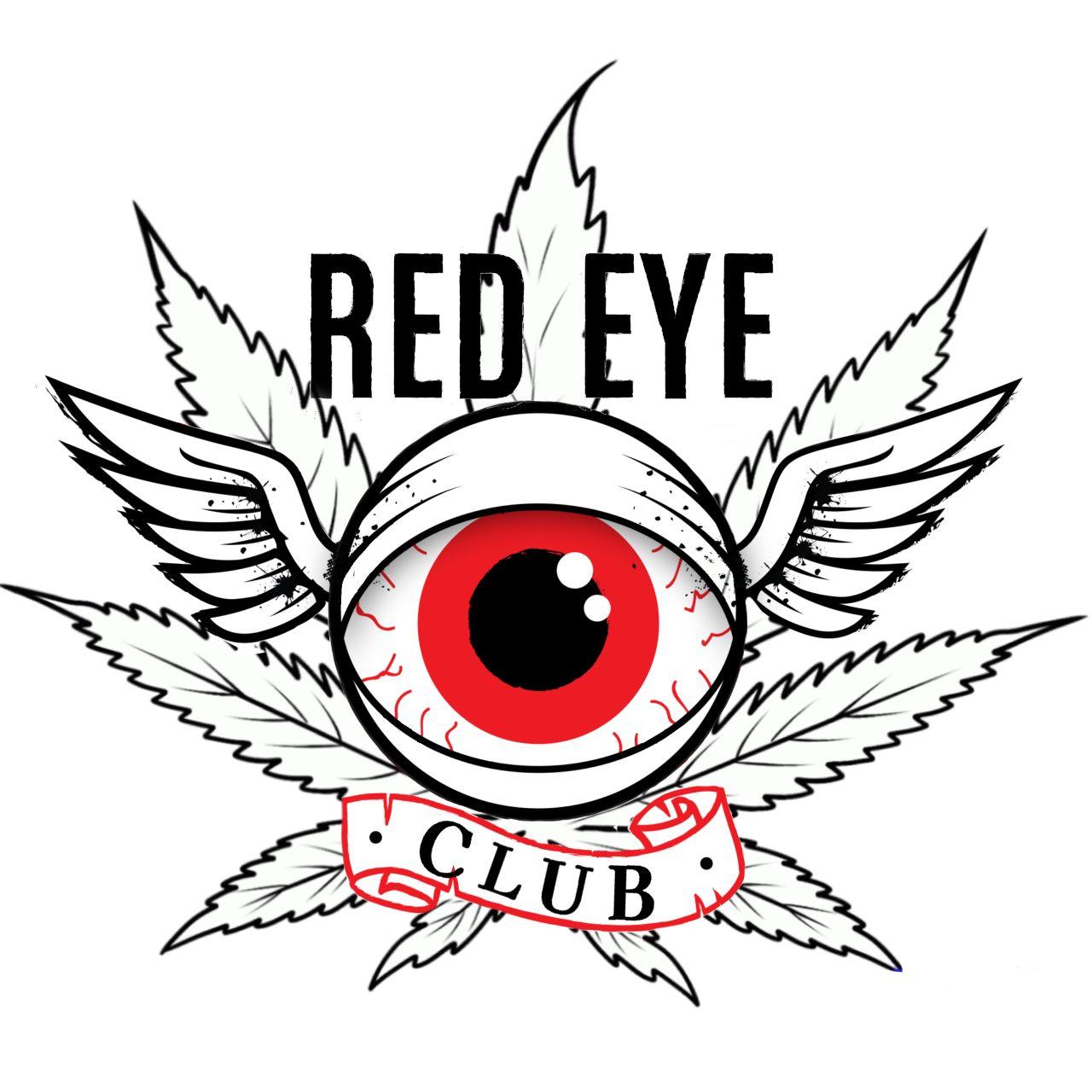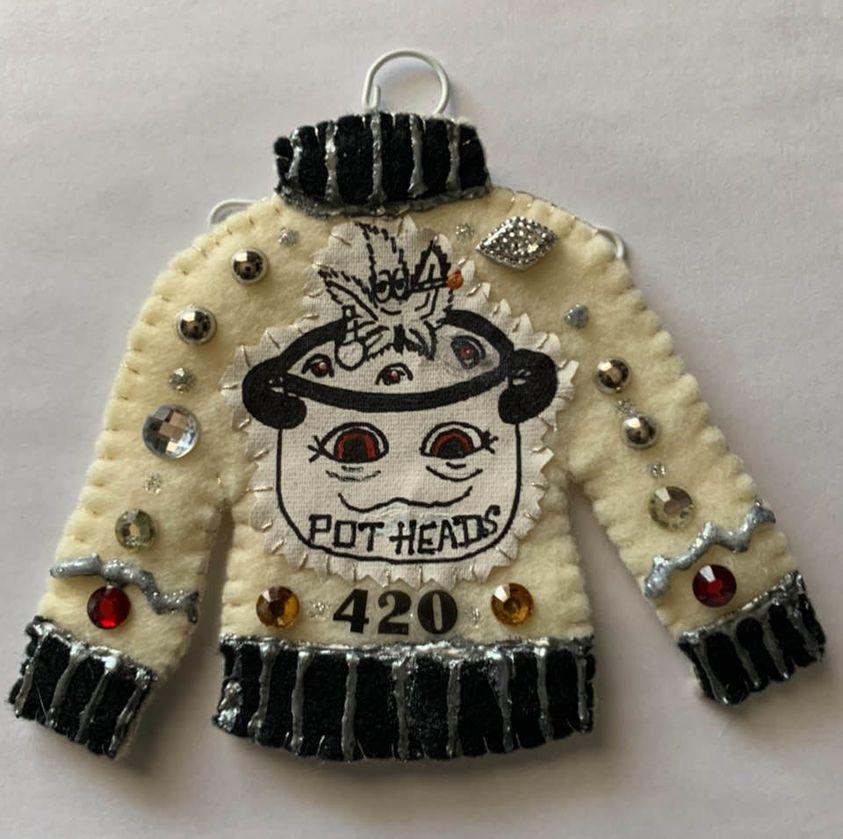REC articles are not the view or opinion of Alpha Extract Administrators
Delta9 – Why is it so important?
Alphaextract's RedEyeClub.org Social Network.

REC Games.
===========
Red Eye Club Hi-Lo Poker & Our Skill Testing Question | alphaExtract (alphaextracts.ca)
Shop Red Eye Club Novelties | alphaExtract (alphaextracts.ca)
You may know of THC (tetrahydrocannabinol) as the element in weed that, well, gets you high. But the compound THC, one of over 400 found in marijuana, is actually more complex than that. So, what is THC and how does it work? Experts weighed in to give TheStreet the latest scoop on THC's applications.
What is THC?
THC, also called tetrahydrocannabinol, is the compound in cannabis that is psychoactive and gives you the feeling of being high. However, THC's chemical make-up, C₂₁H₃₀O₂, is very similar to its counterpart, CBD, which actually combats the effects of THC.
Still, THC mimmics th natural chemical anandamide (which is produced in the brain) in structure, altering the function in communication. So, instead of normal brain communication via neurons, the THC compound attaches to the neurons and changes the process.
According to the National Institute on Drug Abuse (NIDA), THC affects things like thinking, memory, pleasure, movements, concentration, coordination, and sensory and time perception. For these reasons, doing things like operating heavy machinery or driving while under the influence of the drug maybe dangerous.
Still, the stigma that THC gets (especially in relation to marijuana use) may not entirely be the whole story. THC actually brags several health benefits that have been shown to help treat depression, PTSD, epilepsy, and even eating disorders.
THC Composition
THC has the chemical formula C₂₁H₃₀O₂, with a molecular mass of 314.464 g/mol. But, it is very similar in structure and molecular mass to its counterpart CBD, which dilutes the effects of THC.
THC Uses
THC brags a varity of uses, both medicinal and recreational.
Among dozens, THC can be used in syrups, edibles, oils used via tinctures, drops, in medicines, and topicals including lotions and balms used for anti-inflammation.
THC and cannabis can also be used on animals like dogs for pain relief and calming anxiety.
Additionally, Marinol, a medication made with synthetic THC, is the only currently FDA approved THC medication.
THC Legality
Currently, THC (more broadly blanketed under cannabis) is legal medically in 29 states, while recreational marijuana is legal in 9 states and Washington D.C.
However, recent reports indicate legalization may begin becoming more widespread.
In fact, this month the New York State Health Department released a report claiming the "positive effects of a regulated marijuana market ... outweigh the potential negative impacts," according to New York Daily News.
Still, THC (within marijuana) is increasingly becoming a hot topic in the discussion for legalization. And, its advocates are coming from high up.
"The process to legalize and properly regulate marijuana should be seriously reviewed and advanced," said New York Senate Democratic Leader Andrea Stewart-Cousins (D-Westchester) in a statement in 2018. "More and more New Yorkers understand the harm that has been done by criminalizing marijuana, arresting and giving records to millions of our youth, and allowing shadow markets to flourish. We need to start to undo the damage from this misguided policy, and that means advancing common sense legalization efforts."
However, given the controversial nature of the compound, it is unclear when these waves of "common sense" legalization will occur.
THC vs. CBD
Despite the two compounds having almost exact chemical makeups and being part of those that make up cannabis, THC and CBD act rather differently.
THC is the psychoactive component in marijuana that gives you the feeling of being high - however, CBD acts as a counterbalance to the effects of THC. While THC induces drowsiness and gives you that body-high, CBD can actually increase energy.
CBD can often help moderate THC's effects by reducing anxiety and stress
THC Side Effects
Still, despite a variety of uses that have many doctors, producers, and investors optimistic, THC may have some negative side effects that ought to be considered.
In 2017, the National Academies of Sciences, Engineering and Medicine release a study on the health effects of cannabis cannabinoids. Among the experts who contributed to the study was Dr. William Checkley, M.D., Ph.D. from Johns Hopkins University. As an associate professor at Johns Hopkins as well as a pulmonary and critical care specialist, Dr. Checkley claims there may be more negative effects of THC than many experts believe.
"One of the biggest issues with cannabis is when you smoke it. It is not just the drug that you're smoking in...there are also all different kinds of components that come in with the burning of any substance," Dr. Checkley told TheStreet. "There is substantial evidence supporting an association between cannabis smoking and respiratory symptoms. And people who smoke cannabis have more frequent episodes of respiratory symptoms and in particular, chronic bronchitis, which is a combination of cough and phlegm."
Still, the doctor said the study was somewhat inconclusive on the extent of these effects.
"It's clear that if you stop smoking cannabis, your respiratory symptoms can improve," Dr. Checkley said. "What is less clear is that we couldn't really separate how it is with people who smoke cannabis frequently or chronically -- whether they are high risk of developing chronic obstructive pulmonary disease, which is what you see with tobacco smoke."
And that seems to be the general consensus on cannabis-based studies -- that they are, to some degree, inconclusive. Still, Dr. Checkley claims the study seemed to dispel some of the common ideas that THC has more beneficial properties than it may actually possess.
According to Dr. Checkley, couldn't find any link between cannabis or cannabinoid use and many of its supposed benefits.
However, the report allegedly found some connection with THC or cannabis use and certain psychiatric conditions.
"One aspect of the report showed that there was a strong link between the use of cannabis and the development of schizophrenia," Dr. Checkley continued. "And also that the use of cannabis was also associated with mania or hyper mania in people that had bipolar disorder diagnoses. And there has also been a small increased risk of depression as well as increased incidents of suicide attempts and completion. And there was also increased incidents of social anxiety disorder."
Other studies done last year have shown similar conclusions, although all remain somewhat skeptical. Results published in the journal Human Molecular Genetics by researchers from Tel Aviv University (TAU) in Israel may shed additional light on the relationship between THC use and psychiatric problems.
"Our research demonstrates that cannabis has a differential risk on susceptible versus non-susceptible individuals," Dr. Ran Barzilay, psychiatrist at TAU's Sackler School of Medicine told medical news in 2017. "In other words, young people with a genetic susceptibility to schizophrenia -- those who have psychiatric disorders in their families -- should bear in mind that they're playing with fire if they smoke pot during adolescence."
Apart from psychiatric problems and doubt over its benefits for curing symptoms, THC use has also been linked to reduced motor skills, Dr. Checkley says. The study used 21 studies from different countries with a sample size of almost 240,000 participants, claims Dr. Checkley.
"One of the things that we found was that some reported cannabis use with traces of THC in the blood or saliva was associated with about... 20% to 30% higher odds of vehicle crash," Dr. Checkley explained to TheStreet. "And this was pretty consistent, so it didn't really matter how you looked at the data. And so I think the information there was pretty robust, given the number of studies and given the number of countries, and the number of participants supporting that relationships between cannabis use and the increased chances of being in a motor vehicle crash."
However, despite numerous studies, all of the experts seem to agree that due to cannabis' classification as a Schedule 1 drug, the limited studies researchers are able to perform leave the substance's actual effects very much still in question.
In fact, most are optimistic about THC and cannabis' health benefits.
THC Health Benefits
Indeed, there have also been countless reports of the many health benefits of THC and cannabis.
Although still speculative, THC has been shown to potentially help increase appetite in eating disorder patients, help with neurodegenerative diseases, and even potentially help cancer patients.Studies have shown that THC may help patients with Alzheimer's and Parkinson's diseases, as well as provide pain relief for some patients.
In fact, even Dr. Checkley concluded that THC and cannabis have several proven benefits, including relieving symptoms like vomiting for chemotherapy patients and providing pain relief.
And, other experts feel there is room for optimism regarding where THC applications could reach.
"There hasn't been a ton of study yet on CBD and its interactions with other medications, but by and large there doesn't seem to be much [in the] way of negative drug interactions between cannabinoids and even THC and other medications," Kris Krane, president of 4Front Ventures, told TheStreet. "So, we're very likely looking at compounds here that are compatible with other types of pharmaceuticals without having negative effects. So, you can't say for sure that it's definitely the case, but the research that's out there today and the early indications are overwhelmingly positive."
While many doctors are still hesitant to use the seemingly controversial compound, others have only glowing reports of the drug's effectiveness in treating a wide variety of medical issues. One such advocate is Dr. Aung-Din, M.D. -- a general neurology and neuro-psychiatry specialist -- who is also board-certified by the American Board of Psychiatry and Neurology and is a member of the American Academy of Neurology. He was formerly skeptical of THC and cannabis -- but a pivotal case changed his mind.
When presented with a case of a 23-year-old male who had suffered brain injuries at 15 and was having intractable seizures, Dr. Aung-Din was persuaded by the patient's mother to try cannabis medication as a treatment -- which worked.
"It opened my eyes to the potential of cannabinoids," Dr. Aung-Din explained to TheStreet.
After seeing the effectiveness of cannabis for treatment of medical conditions like seizures, Dr. Aung-Din continued to research and now claims there is enormous potential for cannabis or cannabinoid-based medications.
While normal, FDA-approved pharmaceuticals actively change receptor processes in the body, THC and cannabis apparently work a bit differently by capitalizing on natural processes.
"When we use cannabis, we are capitalizing on our own endocannabinoid system," says Dr. Aung-Din. "We make endocannabinoids, and we have CB1 and CB2 receptors, so when you use cannabinoids, you're actually using those receptors, whereas traditional pharmaceuticals either block or stimulate processes. But modulation is what cannabinoids use, which is a much better process."
Despite the various reports of its effectiveness, only one THC-based drug is currently FDA approved, while only one CBD-based drug, Epidiolex, got the stamp of approval as well.
Still, even though THC-based medication Marinol has been FDA-approved for a while, the synthetic THC it uses may not be as effective as natural THC or cannabis, Dr. Aung-Din claims. But there have been reports of numerous other health applications of THC and cannabis.
"I'm treating patients with PTSD, fiber myalgia, cancers [and am] finding cancers regressing when chemo therapy was not helping, so it's a pretty amazing journey," he says.
In fact, THC and cannabis' potential effectiveness in treating cancer has long been noted, but has yet to find widespread uses in the field.
THC Investment
With the FDA approval of Epidiolex by GW Pharmaceuticals this June, the floodgates seem to have opened for cannabis-based medications. And that, for investors, sounds like a big "cha-ching."
And one such advocate of the new applications of THC and cannabis is Krane, president of 4Front Ventures. 4Front is a "360-degree view of the industry" that "provides an ideal vantage point from which to pursue strategic opportunities in the areas of cannabis cultivation, retail distribution, production, technology, and other ancillary services," .
Krane believes the wave of approval for cannabis in medical fields is only the beginning to the benefits that THC and CBD have to offer.
"I think that the approval of Epidiolex in the United States is likely to usher in a new era of cannabinoid-derived pharmaceuticals," Krane told TheStreet. "The only real cannabinoid-based pharmaceutical that was out there was Marinol, which is a synthetic THC, and has not proven particularly effective or popular. But having a naturally-derived cannabinoid-based medicine is positive. I know there are other companies out there that are working on different types of cannabinoid-based drugs, so I think it's likely to usher in a new era of cannabinoid-based pharmaceuticals and that's overall positive."
As a long-time advocate of cannabis for 20 years, Krane has certainly seen the arc of cannabis approval. He was a founding member of students for proper drug policy in the late 1990s. Krane has been involved in DC policy for 10 years and the cannabis industry since 2009 -- so the president is certainly "high" up in the cannabis world.
"The more access points patients have to take cannabis or cannabinoid medicine the better," Krane says. "Because they're effective in treating a range of conditions, it can be an alternative to opiates. And it also is one of the first times that the federal government is officially confirming the medicinal benefits of cannabinoids."
Because of the recently discovered health benefits of cannabinoids, the CBD and cannabis markets appear to be getting ready to bloom.
Dr. Aung-Din seems heartily enthusiastic about the future of the cannabis industry.
"I've never seen an industry with such a wide spectrum of interest -- all the way from recreational to traditional to medical," he says.
OrganiGram and Canopy Growth Corporation provide interesting options for investing in either the production or research sides of marijuana. Additionally, legal marijuana cultivator, processor, and distributor Tilray recently went public on the Nasdaq Global Select Market.
And, with the recent approval of GW Pharmaceutical's Epidiolex medication, the marijuana market seems about to blossom.
Known through out the Cannabis Community as "Miraculous"

Omega8 truly miraculous | alphaExtract (alphaextracts.ca)
